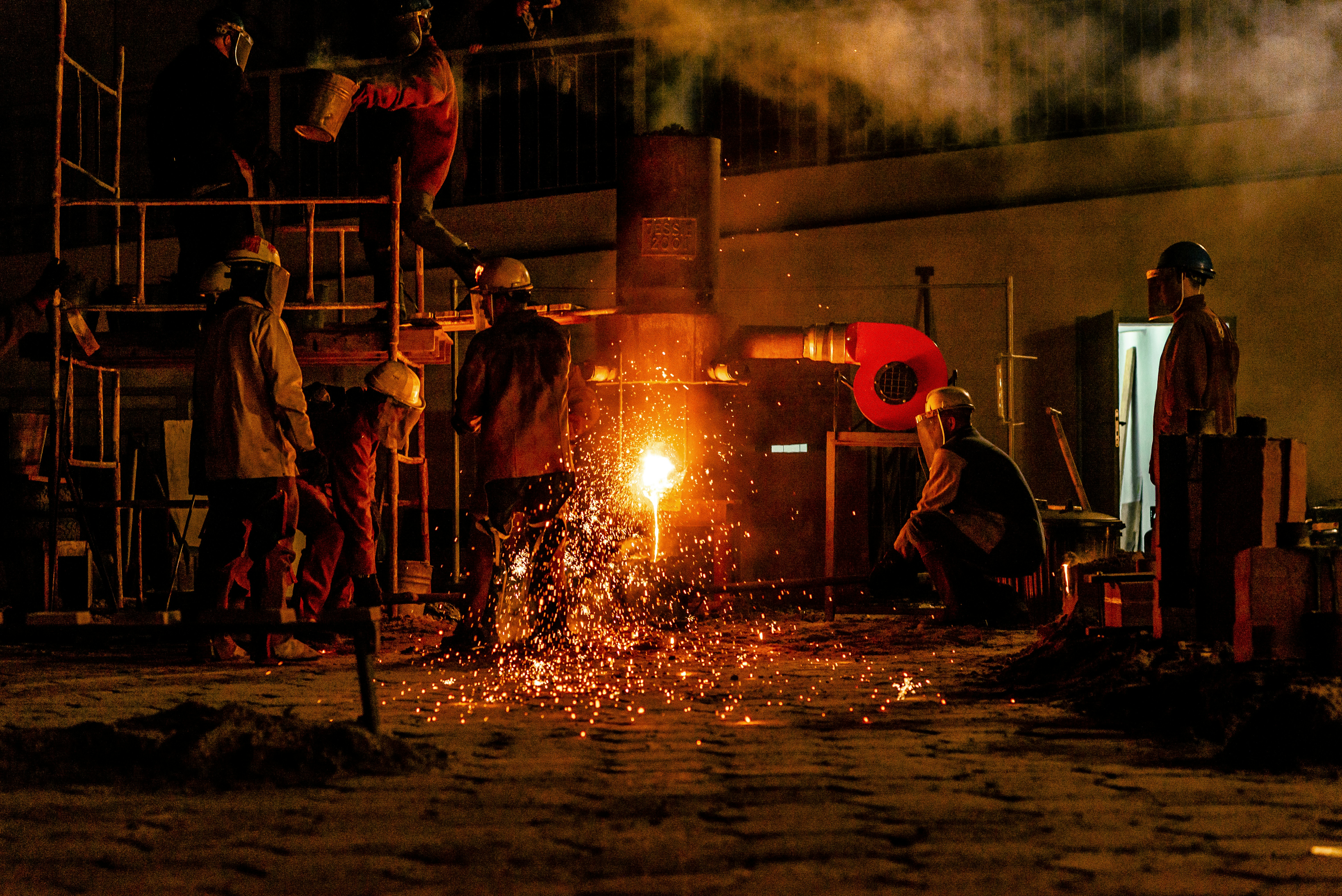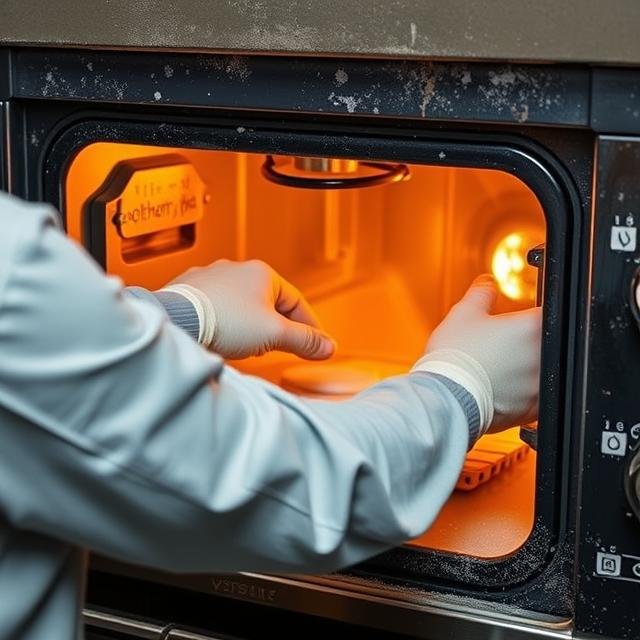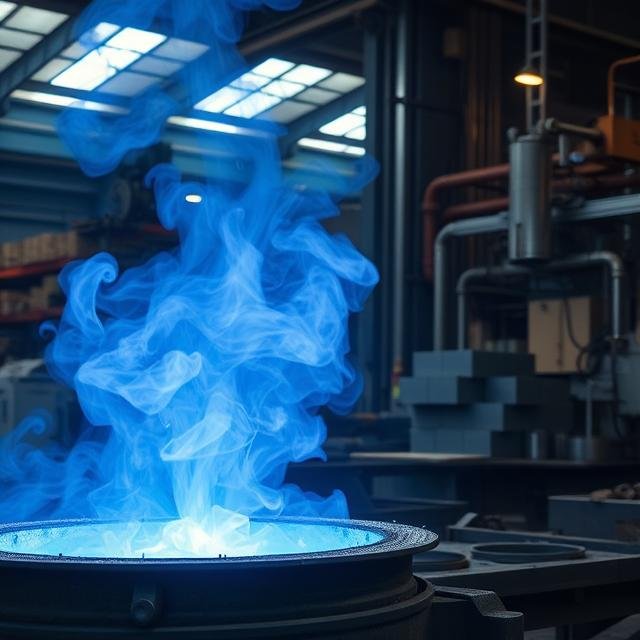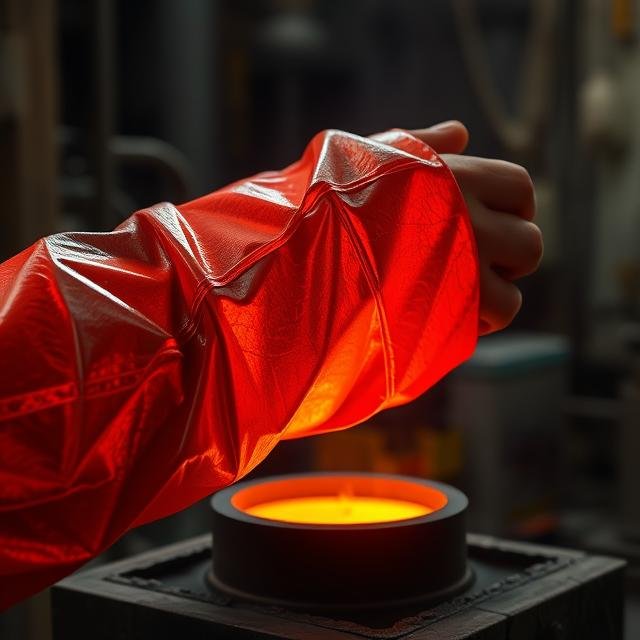
Foundry Consumables: Exothermic Sleeves, Mould Paints, and More
Welcome to our premier source for high-quality foundry consumables, specializing in exothermic sleeves and mould paints. Our products are engineered to enhance casting efficiency, improve metal quality, and reduce defects in ferrous and non-ferrous foundry operations. With a commitment to innovation, sustainability, and precision, we provide tailored solutions to meet the demands of modern foundries, from high-pressure automatic moulding lines to jobbing applications.
Our Flagship Products
Exothermic Sleeves
Exothermic sleeves are critical for optimizing the solidification process in foundry casting, ensuring defect-free castings with enhanced mechanical properties. Our sleeves are crafted from high-grade exothermic and insulating materials, including aluminum additives, oxidizers, and refractory binders, designed to ignite at approximately 680°C to release heat. This prolongs the solidification time of risers, improving feeding efficiency and minimizing shrinkage defects. Key features include:
-
High Feeding Efficiency: Achieve up to 1.55–1.65 modulus extension factor, reducing riser size and remelting costs.
-
Versatile Designs: Available in cylindrical, oval, neck-down, blind, and open configurations, with diameters from 25 mm to 850 mm, suitable for steel, iron, aluminum, and copper alloys.
-
Eco-Friendly Options: Fluoride-emission-free and low-VOC formulations, such as FEEDEX FEF, align with environmental standards without compromising performance.
-
High Strength: Vacuum-moulded for durability, resisting pressures during sand ramming in automated and manual moulding systems.
Our exothermic sleeves are ideal for high-pressure greensand moulding, jobbing iron and steel castings, and aluminum foundries, delivering clean casting surfaces and reduced fettling costs.
Mould Paints (Refractory Coatings)
Our mould paints, also known as refractory coatings, provide superior protection for moulds and cores, preventing metal penetration, burn-on defects, and surface imperfections. Formulated with precise blends of refractory fillers, our coatings cater to both ferrous (iron, steel) and non-ferrous (aluminum, copper) foundries. Key features include:
-
Enhanced Casting Quality: Ensure smooth surface finishes and reduce casting defects, improving wear resistance and component lifespan.
-
Flexible Application: Available in water-based (e.g., SEMCO FD) and solvent-based (e.g., ISOMOL) formulations, suitable for flow coating, brushing, or spraying.
-
Fast-Drying Options: SEMCO FD coatings reduce drying time and energy consumption, boosting productivity and lowering CO2 emissions.
-
Zircon-Free Alternatives: TENO Tec ZA coatings minimize radiation exposure and production cost variability while maintaining performance.
Our mould paints are designed for semi-automated and hand-moulding processes, supporting all binder systems and delivering consistent results across diverse casting applications.
Why Choose Us?
-
Quality Assurance: ISO 9001:2008 certified, with rigorous testing from raw material procurement to final product delivery.
-
Sustainability: Committed to eco-friendly products, including fluoride-free sleeves and low-VOC coatings, reducing environmental impact.
-
Technical Support: Expert guidance on product selection, application, and troubleshooting to optimize casting processes.
-
Custom Solutions: Tailored sleeve sizes, shapes, and coating formulations to meet specific foundry requirements.
Whether you’re casting steel components, aluminum alloys, or intricate iron parts, our exothermic sleeves and mould paints empower foundries to achieve superior quality, efficiency, and cost-effectiveness.
Introduction to Foundry Consumables
Foundry consumables play a crucial role in the overall efficiency of foundry operations. These materials, essential for the casting process, include a variety of products aimed at optimizing performance and ensuring the highest quality of castings. Key categories of foundry consumables include exothermic sleeves, mould paints, and other auxiliary materials designed to enhance both the quality and efficiency of metal casting. Effective utilization of these consumables significantly impacts the final output, making their selection and application a vital consideration for foundry managers.
Exothermic sleeves, for instance, are adept at controlling the thermal profile of the casting, facilitating an increase in metal flow and reducing the likelihood of defects such as shrinkage cavities. These sleeves are equipped to extend solidification times, ensuring that the molten metal retains sufficient heat as it fills intricate mould designs. Consequently, this results in improved metallurgical properties and surface finishes, which are essential for meeting the rigorous standards expected by the industry.
Mould paints also serve an important function within foundries. They are applied to the surfaces of moulds to enhance release properties and reduce defects such as burn-on or sand sticking. This not only elevates the quality of the final product but also simplifies the mould reclamation process, thereby emphasizing both efficiency and sustainability in operations. The continuous advancements in foundry technology have led to the development of more effective and environmentally friendly consumables, contributing to more sustainable practices within this sector.
In light of these developments, it is evident that high-quality foundry consumables not only improve production efficiency but also ensure greater consistency and reliability in metal casting processes. As foundries adapt to evolving demands, the integration of these consumables remains a pivotal aspect of operational strategy, reinforcing the importance of investing in top-tier materials for long-term success.
Understanding Exothermic Sleeves
Exothermic sleeves are critical components used in the casting process, particularly in foundries. They play a significant role in optimizing the solidification of molten metal, ensuring the quality and integrity of the final casting. By utilizing exothermic materials, these sleeves facilitate a controlled heat release that aids in maintaining the temperature of the metal during the initial cooling phase. This is paramount for achieving a uniform solidification, which directly influences the mechanical properties of the cast component.
Typically composed of a mix of materials, exothermic sleeves often include aluminum additives and refractory binders. The aluminum serves as a reactive agent, providing exothermic heat when exposed to moisture or temperature variations. Refractory binders contribute to the thermal stability and structural integrity of the sleeves, allowing them to withstand the extreme conditions present in a foundry. This unique composition enhances their performance, making them indispensable in modern casting applications.
One of the key features of exothermic sleeves is their feeding efficiency. They are designed to optimize the flow of molten metal into the mold, minimizing the chances of defects like shrinkage porosity. Their versatility in design also allows these sleeves to be adapted for various foundry types and casting processes, making them suitable for both ferrous and non-ferrous metals. Moreover, the eco-friendly options available align with the sustainability goals of modern foundry operations, enabling a reduction in waste while maximizing efficiency.
Applications of exothermic sleeves can be observed across diverse industries, including automotive, aerospace, and construction. In each of these sectors, the use of high-quality exothermic sleeves has demonstrated a measurable enhancement in casting quality, while also contributing to significant cost savings. By integrating these advanced consumables into their processes, foundries can effectively maximize their operational efficiency.
The Importance of Mould Paints
Mould paints, often referred to as refractory coatings, play a crucial role in enhancing the efficiency and quality of foundry operations. These specialized coatings protect moulds and cores, significantly reducing the risk of metal penetration and preventing various surface defects that can arise during the casting process. High-quality mould paints create a barrier that not only improves the durability of the moulds but also contributes to superior casting surface finish.
There are primarily two types of mould paints used in foundries: water-based and solvent-based formulations. Water-based mould paints are typically favored for their ease of application, quicker drying times, and lower environmental impact. These coatings allow for a smooth finish and can be easily cleaned with water, making them a popular choice among foundries seeking efficiencies and sustainability. Conversely, solvent-based mould paints often offer enhanced heat resistance and adhesion to various substrates, making them suitable for applications involving high temperatures and complex designs.
The application method of mould paints is equally important, as it affects the performance of the refractory coatings. Common methods include brush application, spray application, and dipped application, each offering unique advantages depending on the complexity and details of the mould. For instance, spray application can provide a more uniform coverage and is highly effective for intricate mould designs.
Key features of high-quality mould paints include an improvement in casting quality, fast-drying options that minimize downtime, and zircon-free alternatives that adhere to modern environmental standards. Many foundries have reported significant improvements in casting surface finish and reduced defects attributed to the effective use of mould paints. By incorporating these advanced coatings into their processes, foundries not only enhance product quality but also gain a competitive edge in the industry.
Why Choose Our Foundry Consumables?
When selecting a supplier for foundry consumables, several key factors influence the overall efficiency, quality, and cost-effectiveness of your foundry operations. Our company stands out in the marketplace by prioritizing quality assurance through rigorous ISO certification. This certification not only confirms that our products adhere to the highest industry standards but also ensures consistent performance, reducing the likelihood of defects and enhancing the overall quality of your castings. By choosing our foundry consumables, you can rest assured that you are utilizing materials that enhance operational efficiency and reduce waste.
In addition to our commitment to quality, we prioritize sustainability. Our range of eco-friendly products reflects our dedication to responsible manufacturing practices, enabling foundries to minimize their environmental impact without compromising on performance. As the industry increasingly shifts towards more sustainable practices, utilizing green consumables can also bolster your company’s reputation and align with regulatory compliance, ensuring a holistic approach to foundry operations.
Another significant advantage of partnering with us is our robust technical support. Our team of experts is dedicated to assisting clients in optimizing their foundry processes, from selecting the right consumables to troubleshooting challenges. We understand that each foundry has unique requirements; therefore, we offer custom solutions tailored to fit your specific operational needs. This bespoke approach not only enhances the final product quality but also leads to improved efficiency and lower production costs.
By choosing our company as your supplier for foundry consumables, you are positioning your operation for enhanced casting results. We invite foundries to leverage our expertise and innovative solutions for a more efficient and sustainable production environment.




